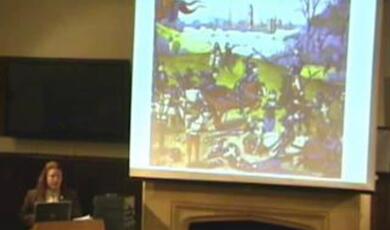The Virtues of Music
Share
- Details
- Text
- Audio
- Downloads
- Extra Reading
This dialogue presents the what and why of Ancient Greek music, and its profound role in philosophy, society and the individual. Education without music was an impossibility in ancient Greece; virtue without music, equally so. One scholar (writing in the late twentieth century) compared the pervasive social presence and impact of the medium of mousikē in Ancient Greece to that of television. But with its participatory motor training and habituation, mousikē, was also a primary mode of acculturation: a way to shape the perceptual attunement and overall outlook of the members of a political community. Engagement with poetry and music pervaded all aspects of Ancient Greek life, and because musical education was the core of Greek education, it was also the core of Greek citizenship and of the virtues. Different musical modes were even thought to impart distinct virtues; for Plato, training in musicality could harmonise the soul, while changes in musical styles and genres could dislocate the entire polity
There is no text for this event
This event was on Fri, 20 Jun 2025
Support Gresham
Gresham College has offered an outstanding education to the public free of charge for over 400 years. Today, Gresham College plays an important role in fostering a love of learning and a greater understanding of ourselves and the world around us. Your donation will help to widen our reach and to broaden our audience, allowing more people to benefit from a high-quality education from some of the brightest minds.


 Login
Login







